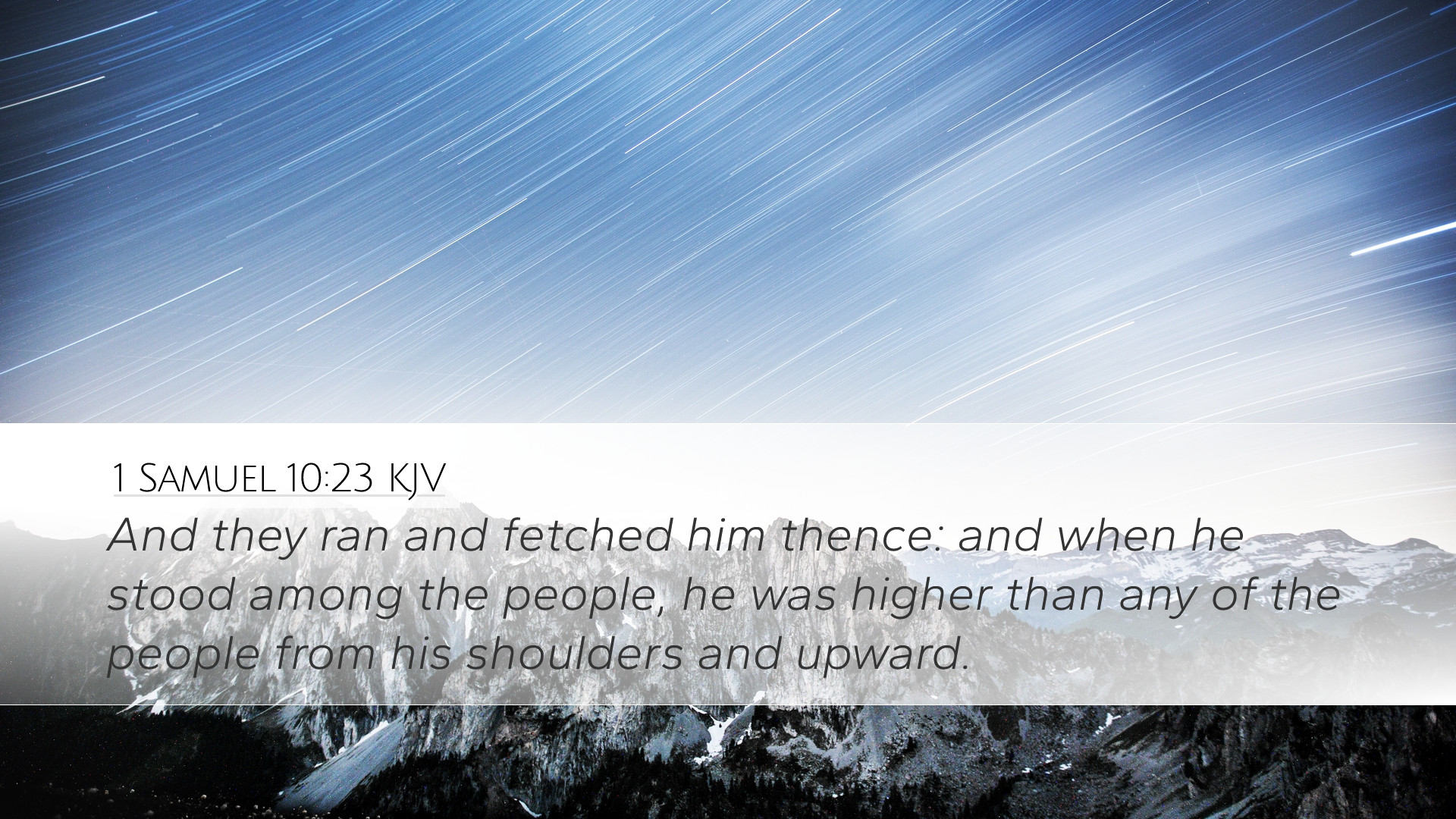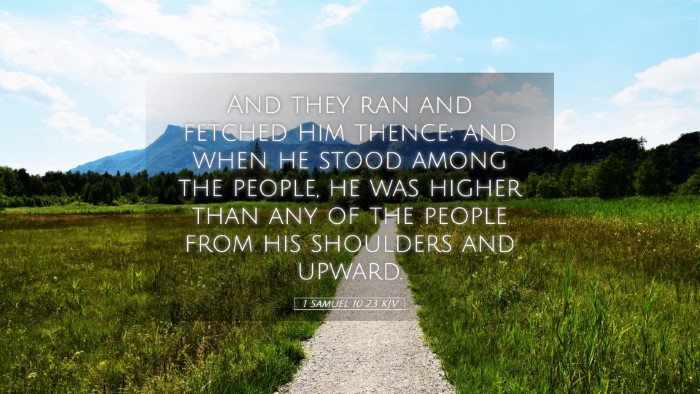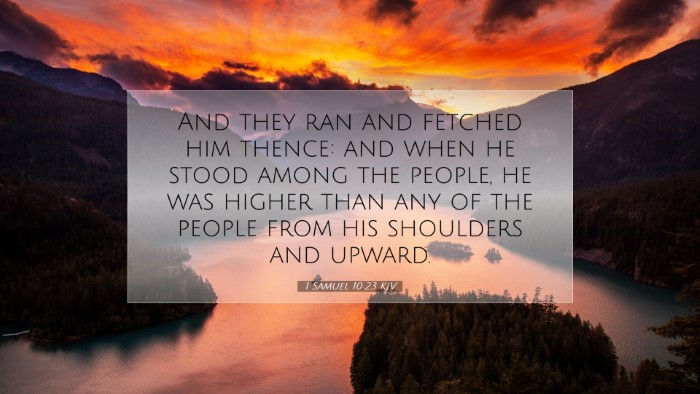Commentary on 1 Samuel 10:23
Bible Verse: "And they ran and fetched him thence: and when he stood among the people, he was higher than any of the people from his shoulders and upward." (1 Samuel 10:23)
Introduction
This verse captures a pivotal moment in the history of Israel when Saul was publicly presented as their first king. Commentaries provide profound insights into the significance of Saul's physical stature, the reactions of the people, and the divine orchestration behind this event. In the context of Israel's desire for a king, this moment signifies both divine sovereignty and human choice.
The Context of Saul's Anointing
Before delving into the specifics of 1 Samuel 10:23, it is crucial to understand the cultural and historical backdrop of Saul’s anointing. The Israelites demanded a king to be like other nations (1 Samuel 8:5). God, acknowledging their request, instructed Samuel to anoint Saul as king, illustrating both the people’s desire for human leadership and God's sovereignty in selecting Saul.
Physical Stature and Its Significance
1. Symbolism of Height: Saul’s stature—“higher than any of the people from his shoulders and upward”—is significant in the context of leadership. Albert Barnes notes that the height of Saul is emblematic of his suitability for kingship among the Israelites, who valued physical presence and strength in their leaders. This was indicative of the common belief that a king should be commanding and imposing.
2. Divine Choice and Human Expectations: Adam Clarke highlights the divine aspect of Saul's anointing, emphasizing that although Saul met the physical expectations of the people, God’s choice transcended mere human criteria. This reflects a theme seen throughout Scripture where God often chooses the unlikely candidates for His purposes.
The Reaction of the People
When Saul stood among the people, the act of fetching him demonstrates their eagerness and expectation. Matthew Henry elaborates on this by suggesting that the crowd’s reaction underscores their willingness to embrace Saul as their leader. However, there is an implicit caution: their enthusiasm could also reveal a superficial reliance on outward appearances rather than spiritual qualities.
The Sovereignty of God in Saul's Selection
The selection of Saul can be viewed as a testament to God’s sovereignty. While the people clamored for a king, God orchestrated their desires to fulfill His divine plan. Albert Barnes points out that God’s hand was evident in the selection of Saul, instilling a sense of purpose and destiny in this moment of transition for Israel.
Theological Implications
1. The Nature of Leadership: This event serves as a critical teaching moment regarding leadership. Effective leadership is not merely about physical attributes but includes moral integrity, faithfulness, and reliance on God. Saul’s height may symbolize what the people valued, yet it also foreshadows the critical need for character undergirding authority.
2. The Complexity of Human Desires: The request for a king reveals a deeper issue within the Israelite community—the desire to conform to worldly standards. Adam Clarke remarks that this reflects humanity's tendency to seek security and validation from external sources instead of trusting in divine providence. This creates an invitation for deeper theological reflection on faith and God's sovereignty in our lives.
Lessons for Modern Believers
As contemporary readers engage with 1 Samuel 10:23, several lessons emerge:
- The Importance of Inner Qualities: In selecting leaders, both in church and community settings, the focus should be on character and spiritual maturity rather than outward appearances.
- Trust in God's Plan: Believers are encouraged to trust in God’s plans even when human desires seem to lead in a different direction.
- The Consequences of Leadership Choices: The actions of leaders have profound impacts on the community. This serves as a reminder of the responsibility held by those who lead.
- Expectations of God vs. Expectations of the World: The church today should critically examine whether its expectations align with God’s priorities or societal standards.
Conclusion
1 Samuel 10:23 is not merely a historical account; it is a rich source of theological reflection that speaks to the nature of leadership, the complexities of human desire, and the sovereignty of God. It calls pastors, students, theologians, and scholars to reflect on their roles: as leaders and followers, as those who navigate between divine calling and human expectation, and as believers who seek to align their lives with God's purpose.


